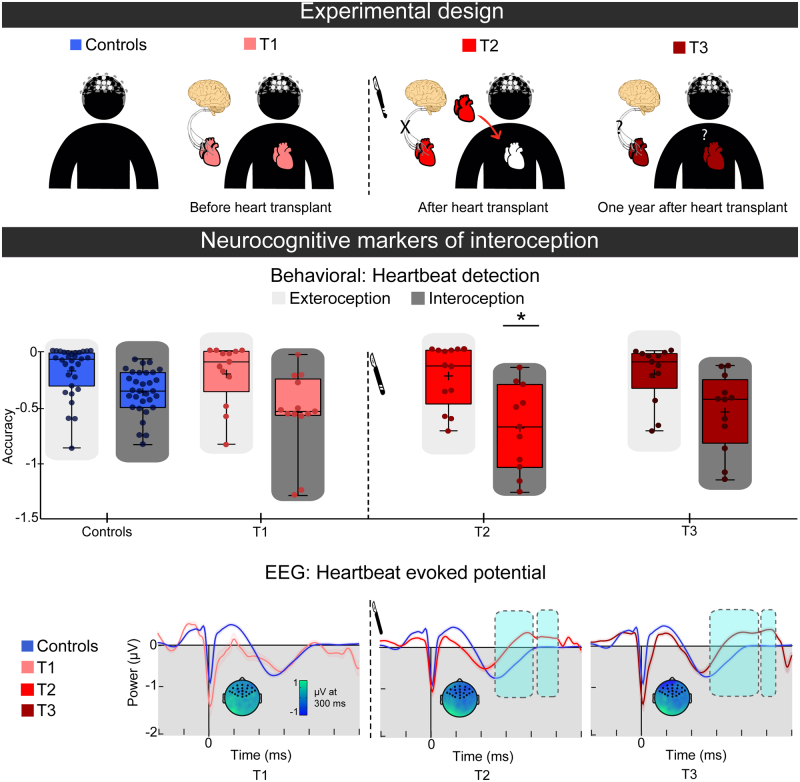07 de septiembre de 2020
Abstract:
Heart–brain integration dynamics are critical for interoception (i.e. the sensing of body signals). In this unprecedented longitudinal study, we assessed neurocognitive markers of interoception in patients who underwent orthotopic heart transplants and matched healthy controls. Patients were assessed longitudinally before surgery (T1), a few months later (T2) and a year after (T3). We assessed behavioural (heartbeat detection) and electrophysiological (heartbeat evoked potential) markers of interoception. Heartbeat detection task revealed that pre-surgery (T1) interoception was similar between patients and controls. However, patients were outperformed by controls after heart transplant (T2), but no such differences were observed in the follow-up analysis (T3). Neurophysiologically, although heartbeat evoked potential analyses revealed no differences between groups before the surgery (T1), reduced amplitudes of this event-related potential were found for the patients in the two post-transplant stages (T2, T3). All these significant effects persisted after covariation with different cardiological measures. In sum, this study brings new insights into the adaptive properties of brain–heart pathways.


